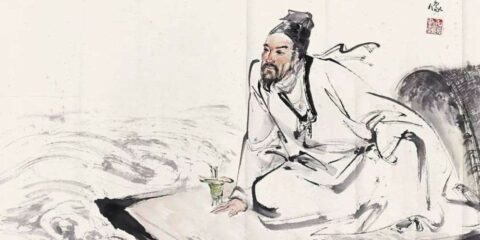| order | author | country | Book name | explain |
| 1 | Charlie Darwin | Britain | Origin of species | The book is probably the most controversial work of the 19th century, and most of its views are generally accepted by today’s scientific community. Darwin’s view was first put forward in this book. Using the data accumulated during his global scientific expedition in the 1830s, Darwin tried to prove that the evolution of species was realized through natural selection (natural selection) and artificial selection (human selection). |
| 2 | Clausewitz | Germany | The theory of war | Clausewitz’s on war is known as the classic of modern Western military theory, which plays an important role in the formation and development of modern Western military thought. Clausewitz himself is therefore regarded as the originator of modern Western military theory. The book is divided into eight chapters, and “on war” is the essence selected by the translator. In the book, the author reveals that war belongs to the essence of politics, points out the role of human factors, especially spiritual power, expounds on the historical trend of the transformation from the nature of war to civil war, discusses the dialectical relationship between strategy and tactics, attack and defense, the purpose and means of war, and puts forward the theory of concentrating superior forces to annihilate the enemy. |
| 3 | Adam Smith | Scotland | An Inquiry into the Nature and Causes of the Wealth of Nations | The concept of the “invisible hand” was put forward for the first time, but Emma Georgina Rothschild, director of the center for history and economics at the University of Cambridge, UK (a member of the Rothschild family), once publicly denied the “invisible hand”, saying that “the” invisible hand “is not an an important concept of Adam Smith’s economics, but an ironic joke”. |
| 4 | Machiavelli | Italy | Monarchy theory | Since ancient times, all countries and regimes that rule mankind have been either republics or monarchies. The monarchy is either hereditary or new. In a hereditary monarchy, the descendants of the monarch have long been the monarchs there. A new monarchy or a new one, such as Francesco Sforza’s principality of Milan; Or vassals occupied by hereditary monarchies, such as the Napoli Kingdom merged by the king of Spain [2]. The territory thus acquired or used to live under the rule of a monarch, or has always been a free country; And its acquisition, or rely on the force of others or the monarch’s own force, otherwise it is due to luck or ability. |
| 5 | Isaac Newton | Britain | Mathematical principles of natural philosophy | Mathematical principles of natural philosophy is a work of philosophy of physics written by British physicist Isaac Newton. It was first published in 1687. The mathematical principles of natural philosophy are Newton’s important work of physical philosophy. The book is divided into three volumes. The first volume, “on the motion of objects”, describes Newton’s three laws; The second volume is also “on the motion of objects”, which discusses the motion of objects under resistance, opening a precedent for hydrodynamics; The third volume, “on the system of the universe”, discusses the system of the universe. |
| 6 | Copernicus | Poland | Celestial motion theory | De revolutionibus orbium coelestium, also known as the hypothesis on the operation of celestial bodies, is an astronomical theory work written by Polish astronomer Copernicus. In the theory of celestial sphere movement, the accuracy of the observed and calculated values are amazing. For example, he obtained that the time of a stellar year is 365 days, 6 hours, 9 minutes, and 40 seconds, which is about 30 seconds more than the current accurate value, and the error is only one millionth; His average distance from the moon to the earth is 60.30 times the radius of the earth, compared with 60.27 times now, the error is only 5 / 10000. |
| 7 | Sigmund Floyd | Austria | Introduction to Psychoanalysis | This book is Freud’s most popular work beside the psychopathology of everyday life. It has been translated into 17 national languages. The lecture notes of the course from 1915 to 1917 at the University of Vienna were printed into a book. Because they are in the form of teaching, they can have a the step-by-step and simple view of the abstruse nature of psychoanalytic theory for beginners who have just studied psychoanalytic theory or have never been in contact with psychoanalytic theory. |
| 8 | Montesquieu | France | In the spirit of the law | The book is the most important work of C. L. Montesquieu (1689-1755), an outstanding enlightenment thinker in the first half of the 18th century, the main founder of the ideological system of modern bourgeois politics and jurisprudence, and one of the founders of the modern historical school. It is called “the first comprehensive political science book after Aristotle; it is the most progressive political theory book up to his time”. |
| 9 | William Harvey | Britain | Anatomy of animal blood movement | Through his own anatomical practice, Harvey refuted many of Galen’s mistakes, especially this formulation, that is, the purpose of pulse and breathing is to inhale vitality to ensure the ventilation and heat dissipation of blood. Experience tells us that when our pulse beats fast and forcefully, our breathing can remain calm; The pulse of fever should also be faster than usual, but the breathing is slower at this time. It can be seen that breathing (i.e. the movement of the lungs) is not the same as pulse (related to the movement of the heart). |
| 10 | Einstein | America | On special and general relativity | This book is one of the Science Classics series in the scientific literacy library. The works included in this series are scientific classics that have been tested by enough history since the birth of modern science in the Renaissance. In order to distinguish it from the word “classic” which is widely used nowadays, we call it “scientific canon”. |
“A drop of ink can cause thousands of people to think, and a good book can change the fate of countless people.”—— Byron
Classics contain great thoughts, eternal artistic charm, and profound ideological connotations. The ten books in the series are a history of the process of world history. Let great and outstanding people be remembered by the world! Solidify the instantaneous history into eternal memory! Give thought and knowledge new vitality!















